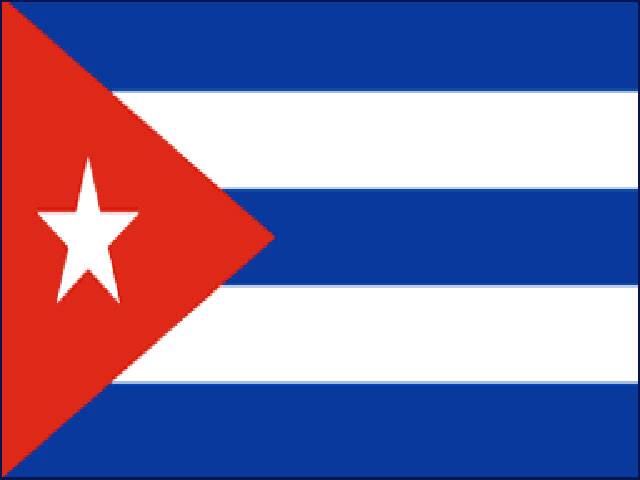UNITED NATIONS - For the 23rd consecutive year, the UN General Assembly on Tuesday voted overwhelmingly to condemn the decades-long US economic embargo against Cuba, with many nations praising the island state for its response in fighting the deadly Ebola virus affecting West Africa.
In the 193-nation assembly, 188 countries voted for the resolution, titled “Necessity of Ending the Economic, Commercial and Financial Embargo imposed by the United States of America against Cuba.”
As in previous years, the only countries that voted against the declaration were the United States and its closest ally, Israel. The Pacific island nations Palau, Marshall Islands and Micronesia abstained. The voting result was identical to last year’s.
In a speech on the U.N. podium, Cuban Foreign Minister Bruno Rodriguez appealed to the United States to change course on an embargo he said has caused great harm to the people of Cuba and caused cumulative economic damage amounting to more than $1 trillion. “We invite the government of the United States to establish mutually respectful relations,” Rodriguez said. “We can try to find a solution to our differences through respectful dialogue. “We can live and deal with each other in a civilized way despite our differences,” he said. “Cuba will never relinquish our sovereignty.”
US Ambassador Ronald Godard dismissed the resolution, saying Havana uses the yearly General Assembly vote as an “attempt to shift blame” for economic problems that are its own creation. While the General Assembly’s vote is nonbinding and symbolic, it serves to highlight U.S. isolation regarding Havana. It is one of very few issues where all of Washington’s Western allies part ways with the United States. A number of countries lauded Havana for sending more doctors than any other country to West Africa to combat the biggest outbreak of Ebola since the disease was identified in 1976.
Among those praising Cuba’s contribution in the battle against Ebola were Iran, on behalf of the 120-nation bloc of nonaligned countries, and Bolivia, on behalf the Group of 77 plus China, a group of developing nations. Mexico, India and others echoed that praise. Adoption of the resolution has become an annual ritual. When it first passed in 1992, it received 59 yes votes and three votes against. But there were 71 countries that abstained and 46 that did not participate in the vote. The gradual shift to a near-unanimous vote in favor is a clear sign of the widespread disapproval of the U.S. embargo on Cuba.
Washington broke diplomatic ties and imposed a comprehensive trade embargo on the Communist-run Caribbean island more than half a century ago during the Cold War. Its policy today appears to be influenced by domestic politics in Florida, where Cuban exiles have opposed any conciliation with former President Fidel Castro or current President Raul Castro, who took over for his brother in 2008.
Wednesday, April 17, 2024
UN votes to lift US embargo on Cuba, for 23rd time

Pride and hype as F1 roars back to China after Covid absence
10:36 PM | April 16, 2024
No let-up in Karachi street crime incidents
10:35 PM | April 16, 2024
Stock market today: Most of Wall Street weakens again as Treasury yields rise more
10:34 PM | April 16, 2024
Muslim K-popstar Daud Kim buys land to build mosque in South Korea
10:33 PM | April 16, 2024
Punjab Stadium unavailability derails National Challenge Cup 2023 Final Round
10:28 PM | April 16, 2024
Political Reconciliation
April 16, 2024
Pricing Pressures
April 16, 2024
Western Hypocrisy
April 16, 2024
Policing Reforms
April 15, 2024
Storm Safety
April 15, 2024
Democratic harmony
April 16, 2024
Digital dilemma
April 16, 2024
Classroom crisis
April 16, 2024
Bridging gaps
April 16, 2024
Suicide awareness
April 15, 2024
ePaper - Nawaiwaqt
Advertisement
Nawaiwaqt Group | Copyright © 2024





